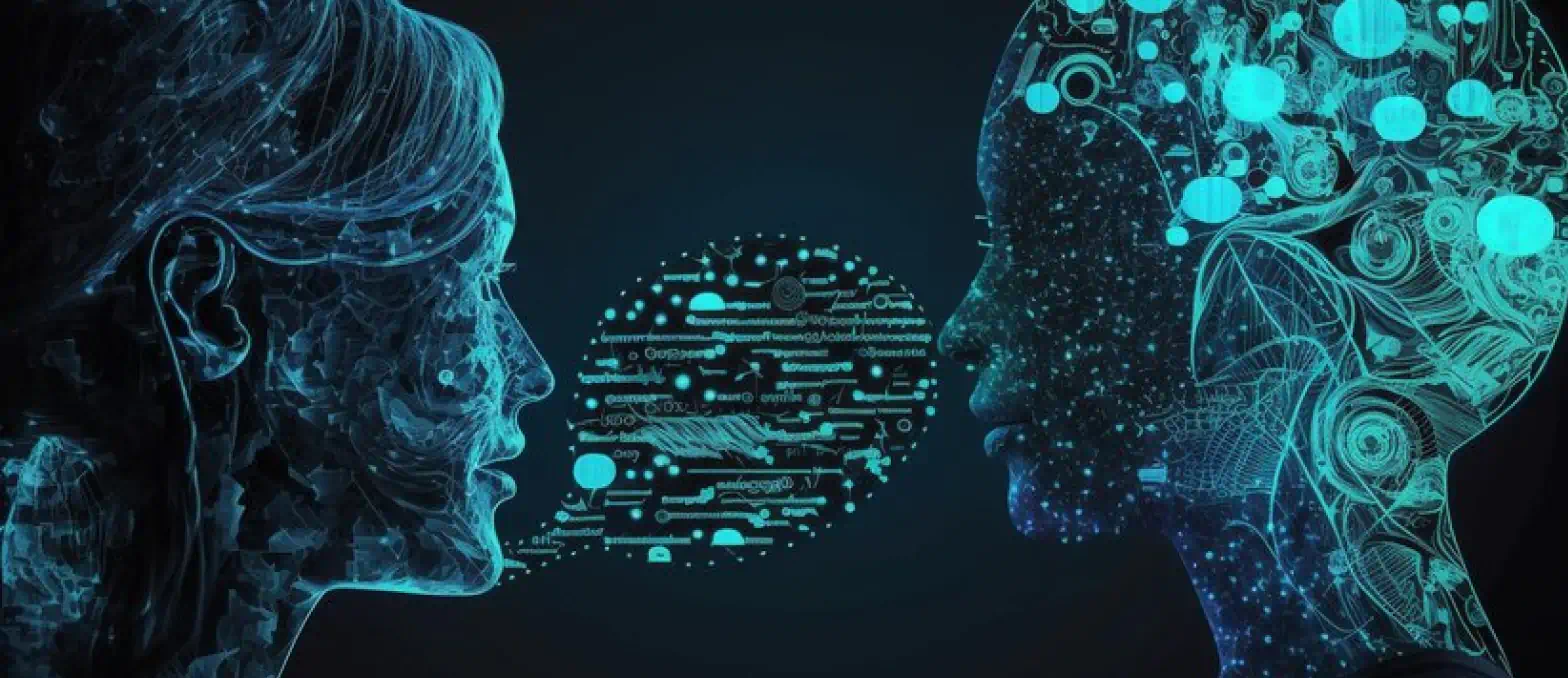AI agents for customer service are software applications fueled by AI (artificial intelligence) developed to assist customers, improve user experiences, and automate tasks. They operate as digital agents that can handle customer inquiries, and provide real-time assistance, improving both satisfaction and efficiency. These AI agents can also communicate with customers via voice, chat, and other interactive channels.
In the customer service domain, AI agents function as a link between customers and businesses, providing round-the-clock support. They considerably reduce response time, enhance consistency, and offer cost-effective solutions while boosting customized interactions, leading to enhanced overall service.
Table of Contents
What Are the Types of AI Agents?
AI agents for customer service are divided into distinct categories, depending on their functionalities:
Chatbots
Automated text-based agents manage customer inquiries by quickly resolving frequently asked questions. Businesses often use them on websites or messaging platforms to ensure rapid and effective communication.
Virtual Assistants
Advanced AI agents handle tasks such as setting reminders, scheduling, offering customized suggestions, and providing tailored experiences. Virtual assistants like Google Assistant showcase capabilities that extend beyond simple queries and handle complex functions.
Voice Assistants
These AI agents are designed for voice-based communication, offering hands-free interaction. Popular examples of AI agents in customer service include Apple’s Siri, Google Assistant, and Amazon’s Alexa. They allow individuals to carry out tasks, like operating smart devices, answering questions, and playing music, via voice commands.
Smart Bots
This category of AI agents blends NLP (natural language processing) and ML (machine learning) to adapt over time. They pick up unique patterns from customer queries and enhance their responses, providing personalized solutions based on old preferences and interactions.
Predictive Agents
Predictive AI Agents process customer information, such as past preferences and behavior, to forecast needs and offer proactive services. For example, they can figure out when a customer may require a product refill and suggest recommendations based on buying patterns.
AI agents in customer service play a significant role in automating tasks, turning businesses more responsive and efficient to customer needs and demands.
Use cases of AI agents in Customer Service
AI agents offer a variety of capabilities in customer service, revolutionizing customer experiences and optimizing business efficiency. These AI agents are being increasingly welcomed by businesses across the world to provide rapid responses, data-driven insights, and personalized interactions. Given below are some of the most popular use cases that highlight their significance in the industry:
24/7 Proactive Customer Support
Round-the-clock support is one of the top AI agent use cases in customer service. It ensures that customers can access assistance at any given time, including off-hours of a business. These AI agents proactively address routine queries, answer questions, and offer customized recommendations, lowering wait times and boosting customer satisfaction. Since AI manages basic inquiries, human agents are allowed more time to focus on complex issues.
Sentiment Analysis for Real-Time Emotional Insights
AI agents can process customer interactions to spot emotional tones, helping businesses understand customer emotions instantly. By identifying negative or positive emotions, these AI agents can prioritize issues of urgent nature, offer empathetic responses, and improve overall customer satisfaction. Being able to spot happiness or frustration assists businesses in responding appropriately, and makes it one of the top AI agent applications in customer service.
Virtual AI Agents with Voice Assistance
Virtual AI agents with voice functionality communicate with customers through smart devices. They can respond to queries, help with tasks, and resolve issues via NLP (natural language processing), making communication more interactive and offering customers a hands-free experience. Popular voice assistants such as Siri or Alexa offer seamless, real-time interaction with customers.
Hyper-Personalized Customer Journeys
AI agents make use of customer data and past interactions to generate customized experiences. By personalizing solutions, suggestions, and content to user preferences, these AI agents boost customer satisfaction and loyalty. AI agents for customer service ensure a more relevant and engaging service journey for the end user. Customized recommendations lead to improved product suggestions, boosting customer retention.
Dynamic Knowledge Base Creation
AI-driven agents constantly collect and process data from customer interactions, allowing them to build a dynamic information base. This aids in the rapid resolution of queries, ensures updated information for customers, and helps agents in offering accurate and consistent responses. AI’s ability to learn from diverse customer interactions ensures that the knowledge base stays relevant.
AI-Driven Customer Loyalty Programs
AI agents are also known to make use of information-driven insights to generate customized loyalty programs, rewarding customers depending on their preferences and behavior. AI agents for customer service help businesses build stronger relationships, and boost customer retention with handcrafted incentives. AI’s ability to pick spending patterns helps in designing loyalty programs that deeply resonate with customers.
Automated Issue Escalation and Resolution
AI-powered agents can also help in the detection of complex issues that go beyond their capabilities. They can automatically escalate the case to human agents who can provide assistance in a precise manner. This ensures that customers’ issues are addressed on a prompt basis, optimizing the resolution channel while maintaining a seamless experience. The agents make the escalation process smooth, lowering customer frustration and improving overall service.
AI-Powered Feedback Loops
AI agents in customer service also happen to gather feedback from customers post-service, processing responses to generate actionable insights. These insights can be leveraged to improve services, customer experiences, and processes, creating a constant cycle of improvement based on unique data. AI can also monitor emotional patterns and provide businesses with the information required to refine their service strategies.
AI-Enhanced Self-Service Portals
One of the most popular AI agent use cases in customer service is self-service portals. These enhance the overall customer experience by offering intelligent search, guided solutions, and interactive FAQs. They help customers to rapidly find answers to their questions or resolve queries independently, minimizing the need for live agents, thus, enhancing customer satisfaction. These intelligent portals offer customers the tools to resolve issues on their own while maintaining efficiency and accuracy.
Benefits of AI Agents in Customer Service
There are numerous benefits of AI agents in the customer service domain. From enhancing operational efficiency, and customer experience, to increasing the profitability of a business, AI agents have become the need of the hour. The applications of AI agents in customer service are being incorporated in more and more businesses internationally with every day that passes.
These agents help optimize processes, offer 24*7 assistance, and deliver customized interactions. By handling a variety of routine tasks, AI agents allow human agents a bigger window for dealing with more complex issues, eventually driving customer engagement and business growth. That being said, let’s dive into some of the most popular benefits that AI agents bring to the customer service industry:
Improved Speed and Efficiency
AI agents are proactive with their responses, considerably lowering wait times for customers. They can manage several inquiries at the same time, ensuring rapid resolutions and enhancement of overall efficiency. AI agents in customer service aid businesses in managing a higher inflow of queries without compromising on the quality of communication.
Uninterrupted Availability
Unlike human staff, AI agents can always stay available, offering uninterrupted customer assistance at any time of the day or night. This ensures that customers, regardless of their time zones or those with urgent queries can access support whenever required, improving the overall level of convenience.
Cost-Effective Assistance
Through the automation of repetitive tasks and management of large volumes of issues, AI agents help businesses bring down the overall operational costs. Since it lowers the requirement for extensive human staff, making customer service operations more economical, it’s considered among the top benefits of AI agents in customer service.
Accurate and Consistent Responses
AI-powered agents are also applauded for their consistent delivery, and error-free data across all interactions with the customers. Unlike human agents who may change their responses due to several personal factors, AI ensures that customers always get a high-quality service, ensuring brand consistency.
Expandable Operations
AI agents can be easily scaled to different proportions of increasing customer demands without compromising quality. As business volume increases, these agents can easily manage huge customer information bases, ensuring that service levels stay the same during seasonal surges, business expansion, or peak times.
Enhanced Customer Experience
Enriched customer experience is another one of the top benefits of AI agents in customer service. With the help of personalized suggestions and solutions based on customer information, AI agents boost the overall experience. They personalize communication, ensuring customers feel understood and valued, resulting in stronger relationships and meaningful engagements with the brand.
Strengthened Customer Engagement
AI agents are also known for facilitating proactive engagement by offering customers relevant deals, updates, and reminders. This type of proactive approach makes customers stay engaged with the brand, driving future interactions and increasing the chances of customer retention and repeat business.
Data-Driven Analytics and Insights
Among the core applications of AI agents in customer service includes the collection and analysis of chunks of customer data, providing insights into their behaviors, issues, and preferences. Businesses can leverage this information to enhance products, services, and communication, leading to enhanced strategies and improved decision-making.
Challenges and Limitations of Customer Service AI Agents
While AI agents provide a wide range of benefits, they also seem to bring along limitations and challenges in customer service. Issues like dependency on data, limited problem-solving skills, and lack of emotional understanding can affect the overall customer experience. Businesses must optimize the role of AI agents in addressing such challenges to maximize the potential of AI while ensuring customer loyalty.
Let’s talk about some of the most common limitations and challenges of customer service AI agents:
Absence of Emotional Understanding
AI agents more often than not, struggle to respond or understand ideally to complex human emotions. Their inability to showcase empathy or adjust to subtle emotional cues may lead to frustrating communication, particularly in sensitive scenarios where customers require emotional support or understanding.
Restricted Problem-Solving Skills
The role of AI agents in handling routine inquiries is exceptionally important, however, they can face issues with unique or complex problems. When face to face with an unfamiliar issue, AI may offer incomplete or inaccurate solutions, requiring eventual escalation to human staff for resolution, which can cause a delay.
Heavy Dependence on Data
AI agents depend heavily on an information base to operate efficiently. Incomplete or inaccurate data may lead to misinterpretations, poorly targeted recommendations, or incorrect responses. Without accurate or sufficient data, AI may be unable to meet the customer’s needs or expectations.
Inability to Manage Sophisticated Interactions
One of the top challenges of AI agents in customer service is the struggle with conversations that involve sarcasm, humor, or ambiguity, which are common in human interactions. These nuances may confuse the AI frameworks, leading to unsatisfactory or irrelevant responses that undermine the quality of customer service.
Significant Implementation Costs
The implementation of AI-fueled customer service frameworks usually involves a considerable amount of investment in technology, training, and infrastructure. For small businesses or those with limited resources, this upfront cost may become a barrier to adopting AI agents despite their long-term benefits.
Resistance from Customers
Despite the change in the technological landscape, some customers prefer human interaction over AI-powered solutions. This is mostly because of concerns related to the impersonal nature of AI agents or machine reliability. This resistance is among the top challenges of AI agents in customer service, as many customers feel more at ease with human understanding and empathy.
Data Security and Privacy Concerns
AI agents happen to gather huge volumes of customer information to customize interactions, raising concerns over data security and privacy. Breaches or mishandling of sensitive data may lead to legal issues, customer distrust, and reputational damage to businesses.
Reliance on Constant Training
AI agents need ongoing training and updates to stay relevant to the ever-evolving customer trends, language use, and demands. Without routine maintenance, AI agents in customer service may fall in efficiency, leading to obsolete responses or an inability to address new types of customer issues.
The Future of AI agents in customer service
The future of AI agents for customer service looks bright and promises a significant transformation. It’s being powered by constant advancements in AI (artificial intelligence), ML (machine learning), and NLP (natural language processing). As AI technology evolves further, these agents become more engaged in complex, context-aware dialogues, making them more personalized and efficient. They will not only manage inquiries but will also analyze customer emotions, behavioral patterns, and preferences, promoting a highly customized service experience.
In the years that follow, AI agents will play an important role in multichannel service, integrating various platforms like social media, voice assistants, and messaging apps. Companies are increasingly looking to hire generative AI engineers to develop cutting-edge solutions.
With the rise of omnichannel experiences among customers, AI agents will ensure coherent and consistent service, regardless of how a customer chooses to communicate. They will also become more independent, adapting and learning in real-time to new scenarios and customer demands, lowering reliance on human intervention.
Here are some of the interesting future trends in AI customer service:
- Fostering Emotional Intelligence: Future AI agents will feature advanced emotional intelligence, helping them better understand and respond to customers, and enhancing interactions and customer satisfaction.
- Cross-Platform Availability: AI agents will also provide an unparalleled experience across all platforms, allowing customers to communicate with businesses via voice, chat, or video.
- Predictive Assistance: AI agents will also be able to forecast customer demands or requirements and offer assistance or solutions before the need arises, based on behavioral patterns and data analysis.
How A3Logics Can help you develop AI agents to handle customer queries efficiently?
A3Logics, an AI agent development company, specializes in developing sophisticated AI agents that can handle customer queries efficiently. By utilizing cutting-edge AI (artificial intelligence), ML (machine learning), and NLP (natural language processing) expertise, A3Logics develops systems that provide accurate and customized support.
A3Logics also helps in integrating AI agents into existing customer service platforms, including voice assistants, omnichannel support systems, and chatbots. These AI agents can handle routine tasks like answering queries and resolving issues, while enabling human staff to focus on more challenging problems, thus, streamlining operations.
With constant optimization through information-driven insights, A3Logics ensures that AI agents evolve, enhancing their relevance and performance. A3Logics’ secure and scalable solutions offer businesses an adaptable and flexible way to boost customer experience, minimize costs, and improve efficiency.
Conclusion
AI agents are transforming the customer service domain by offering cost-effective and efficient solutions that improve customer interactions. Their ability to manage routine queries, offer round-the-clock assistance, and offer customized experiences considerably boosts customer satisfaction while optimizing overall efficiency. As AI technology evolves, to stay competitive, it’s essential to collaborate with a generative AI development company for tailored AI solutions.
Despite the several benefits that AI agents offer, there are multiple challenges that must be addressed for them to reach their full potential. Issues such as data dependency, emotional intelligence gaps, and the need for constant training can impact their effectiveness. Businesses must sail through these challenges to ensure they can offer a seamless customer experience.
FAQs
How to use AI agents for customer experiences?
AI agents for customer service can be used to enhance customer experiences in several ways:
- 24/7 Assistance: Virtual assistants and Chatbots offer round-the-clock support, managing inquiries and resolving issues at all times.
- Custom Interactions: AI agents can analyze data to tailor recommendations, improving customer engagement and satisfaction.
- Predictive Support: AI-powered agents can also anticipate customer needs via past interactions to provide proactive solutions.
- Multi-channel Assistance: These agents can function across several platforms (mobile, web, social media), ensuring consistent support.
What is conversational AI for customer service?
Conversational AI agents in customer service are AI-fueled virtual assistants and chatbots that interact with customers via natural language. They help businesses in answering queries, resolving issues, and providing customized support to customers. By mimicking human dialogues, conversational AI enhances customer experiences, reduces response times, and improves efficiency.
What are the ethical considerations for integrating AI agents in customer service?
There is a wide range of AI agent applications in customer service, and to unlock their maximum potential, the following ethical considerations shall be taken into account:
- Data Security and Privacy: Ensuring customer information is securely managed, used, and stored, with transparent processes.
- Fairness and Bias: Avoid biased decision-making by training AI on several datasets to ensure fair treatment for all customers.
- Accountability: Defining responsibility in scenarios where AI makes any kind of mistake or causes harm to customer experience.
- Human Oversight: Ensuring human staff is always available to handle challenging issues and intervene whenever necessary.
Can AI agents handle complex customer queries?
AI agents for customer service can easily handle some of the complex customer queries, particularly those with well-defined patterns. The agents usually leverage advanced NLP (natural language processing) and ML (machine learning) to achieve this.
They can process context, offer detailed information, and suggest relevant solutions. However, human agents often handle extremely complicated or emotionally sensitive issues, while AI agents excel at providing rapid responses and automating repetitive tasks.








